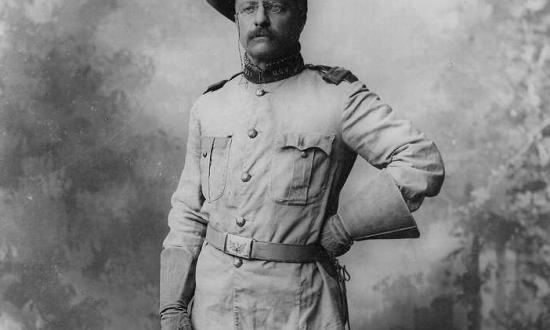The list of lessons I learned throughout my recent service as both the Under Secretary and Acting Secretary of the Navy, to include the incident on the USS Theodore Roosevelt (CVN-71), is long. During my tenure, I was a vocal proponent of building a culture of continuous learning in the Department of the Navy, so I tried not to be immune to my own advocacy of such a culture. As a fan of the former Late Show host David Letterman’s Top Ten lists, I have attempted to distill my lessons down to my own Top Ten. I hope young people who aspire to positions of leadership will find these particularly helpful.
In the era of perpetual social media exposure and viral criticism, there is a lot of pressure not to do any of the things on this list. As I learned, the consequences of trying to make the best decision, given the information available at the time of the decision, are not predictable. They weren’t predictable for either the commanding officer of the Theodore Roosevelt or me last spring. I know he believed he was making the best decisions he could at the time. In my view, he made a big mistake. Ultimately, that was my judgment to make as his most senior boss in the Department of the Navy. It was my call. Not the media’s. Not Congress’s. Not the retired generals or admirals who seem very comfortable enhancing their personal brands by second guessing people in public office—a role they resented when they were on active duty and grappling with life-and-death decisions.
Everyone makes mistakes. Everyone. In times of high tension and stress—times like the current COVID-19 pandemic—fear often accentuates mistakes and increases the misinterpretations of facts surrounding them. That fear drives public vitriol and division, but it should not dissuade leaders from making unpopular decisions. Our world will get less and less predictable, but we must not abandon our responsibilities and missions simply because we fear that social media mobs may call for our heads when they disagree with decisions we have made.
Sir Winston Churchill is purported to have said, “Success is never final, failure is not fatal: it is the courage to continue that counts.”
In the months since my departure from the Pentagon, I have asked myself over and over, with the benefit of hindsight, could I have done things differently? Of course, I could have, but none of us have the luxury of perfect vision—either foresight or hindsight. We do our best with what we know and believe in the moment, and we try not to be reckless, or inconsiderate in that process.
Do I still believe I should have relieved the Theodore Roosevelt commanding officer? Yes.
Do I still believe it was my responsibility to go to Guam? Yes.
Do I still believe I should have addressed the crew with a tough message? Yes.
Do I still believe I was correct in offering Captain Crozier redemption and a chance to continue to make meaningful contributions to the Navy? Yes.
Do I still think I was right to resign? Yes.
The mistakes I made were within the execution of those broad decisions. Sometimes those items of execution really matter, but if they are not done perfectly, we cannot allow them to paralyze and deter us from doing the right thing when called to do so in the future. In the end, the biggest casualty of the decisions I made regarding the Theodore Roosevelt was my tenure as Acting Secretary. From my perspective, that was a small price to pay if the broader message I tried to convey to the crew about love, duty, and courage sinks in with our entire Navy over time.
My Top 10 lessons from My Time as Acting Secretary of the Navy:
Number 10: Don’t be afraid to reach down into your organization to talk to people several layers beneath you.
The only way to understand what is happening on the “deckplates” of an organization is to communicate frequently and directly to that level. While this may frustrate or anger those within the established hierarchy who you must bypass to do so, it is the best way to get the unvarnished truth about the conditions of your workforce, your customers, your suppliers, etc. Those in the hierarchy not comfortable with you doing this must evolve and understand that your actions are not because you have little faith in their leadership, or because it is part of a “gotcha” effort. The information you gather in this process must be used to address issues constructively, not punitively, and eventually to develop a more open and transparent culture, a critical characteristic of the most effective organizations.
Number 9: If you believe something is true, be your own biggest skeptic, and confirm the facts yourself.
As a senior official in government, or a senior executive in a corporation, it is easy to become subject to believing your own assumptions about things. Committed staffs reinforce this by affirming your instincts as a way to demonstrate support and loyalty. If possible, construct a staff with smart people who do not do this—people with high integrity who have different perspectives that challenge your own. Alignment on strategy is critical, but dissent on execution must be allowed so that you do not become enamored with your own ideas. Finally, if you are seated at the top of an organization you must be your own biggest skeptic. The surer you are about something instinctually, the more you should challenge your instincts and confirm the truth.
Number 8: Redemption can be earned, and it is usually deserved.
We have become an unforgiving society, one in which mistakes are not tolerated. Often one mistake is used to condemn a leader who had a lifetime of virtuous service. This is unfair and unjust, and it should stop. Social media shaming has exacerbated this trend as the mob is generally undeterred from piling on, without facts or consequences. As a leader, your default position should always be to offer individuals an opportunity for redemption. In my office in the Pentagon I had two pictures that illustrate my sentiments about this. One is the 1907 formal reprimand of a young naval officer. The report cites the officer for poor judgment in allowing his ship to run aground while he was in command. The other is a massive painting of the surrender ceremony on board the battleship Missouri in Tokyo Bay in 1945. The man in the center of that painting—Admiral Chester Nimitz—is the same officer who was reprimanded in 1907. The symbolism of those two artifacts was intentional. People make mistakes every day. Some get called on the carpet for them, others never do, but we all make them. The totality of an individual’s value must be weighed against whatever transgressions he or she may have committed. Offering grace is not a sign of weakness. People make mistakes all the time, but, for the most part, their value far exceeds the cost of their mistakes, and that value is worth embracing, protecting, preserving, and redeploying.
Number 7: Always speak from the heart (and avoid profanity!)
We are now living in a world in which there are very few private conversations, particularly for those in leadership positions. Be aware of this reality, but don’t be afraid of it. People want leaders to be real—to communicate with them, from the heart with passion and emotion. If leaders worry too much about “optics” and the media misinterpreting their words, they risk saying nothing and inspiring no one. That said, be aware of context and your own style. Don’t try to be someone you are not, and, as I learned, avoid using profanity, particularly when your audience might be global. Cursing can be an effective form of communication if you are a comedian, a football coach, or a master chief, but I wouldn’t recommend it unless absolutely necessary. Sometimes it just might be.
Number 6: When emotions are raw, particularly your own, empathize more and lecture less
Emotions are difficult to control and when the stress is high and the pressure is on, it is easy for passion to transform into anger. There is nothing wrong with feeling angry at times, the trouble comes when you allow it to show in your demeanor too demonstrably. Without question, anger will undermine your credibility as a leader, and it may lead to false assumptions about your compassion and respect for your people. Put yourself in the shoes of those you are addressing. Lecture less, listen and empathize more.
Number 5: When explaining difficult decisions, take off the “mask” and look people in the eye.
In my case, and in this COVID era, the idea of “taking off the mask” is literal. It is also a metaphor for how best to handle any controversial decision. When I visited the Theodore Roosevelt in Guam everyone was wearing a mask, including me—literally and figuratively. The fact that I could not address the entire crew in a gathering where I could see their faces, listen to their voices, and truly sense their angst and anger made the situations worse. This was a huge mistake on my part. I should have thought of a more personal and effective way to speak to them, but the COVID restrictions on the ship limited the possibilities. Nonetheless, I should not have allowed them to limit my imagination and insistence at the moment. “Taking off the mask” is also a metaphor for how to address any group or individual when delivering unpopular information. Take off the mask of title, of privilege, or of self-righteousness, and look people in the eye with an open heart that seeks to explain and console simultaneously.
to make those decisions and not defer them to others. Here, the commanding officer of the USS
John S. McCain (DD-56), Commander Ryan Easterday, looks out over the Philippine Sea in
December 2020. (U.S. Navy photo by Markus Castaneda)
Number 4: If an unpopular decision has to be made, make it. Don’t ask someone else to make it for you.
When I was preparing for my confirmation hearing to become the Under Secretary of the Navy, I visited several former Under Secretaries and Secretaries of the Navy to get their advice and perspective about the job. One former secretary told me to always get other people in the organization to do things for you. In other words: delegate, otherwise you risk putting yourself and the Office of the Secretary in the center of controversies not of your own making. If self-preservation in office had been my primary goal, then I think this would have been good advice, but I took the job to drive change and have an impact. Leaders don’t have to make unpopular decisions every day, but when one has to be made, make it yourself. Don’t push the decision down, and the potential backlash, onto others below you in the organization. Be decisive and take the heat. That’s what you are there for.
Number 3: Titles are fleeting, impact is what matters.
During my tenure as Under Secretary and Acting Secretary of the Navy, several times a day I would walk past the portraits of previous Secretaries of the Navy. I suspect that for many of these former secretaries their respective tenures represented the height of their individual ambition. Many I had never heard of, but some were familiar: Josephus Daniels, James Forrestal, John Warner, John Mittendorf, and John Lehman stood out to me. I know of these men not because of their portraits or the title they all shared, but because of what they did while in office. What you do is always far more important that what title you have. Titles are fleeting—and in Washington they come and go more frequently than elections. The same is mostly true in the private sector, and often the loss of title for an individual leader comes as rapidly, and as much of a surprise, as it can in government. Don’t focus on it. Focus on what you can do in the job you are privileged to hold at that moment. Focus on what positive impact you can have on the organization you serve, and never think about how your portrait will look on a wall.
Number 2: Understand that serving others, and your country, means you are the least important person in your life.
When you have the responsibility to lead an organization, large or small, you must put yourself last. This is especially true in public service because you have been entrusted by your fellow citizens to act honorably and in the best interests of your city, state, or nation. If you begin your decision-making process with the question “How will this impact my organization and its mission over the long run?” as opposed to “How will this impact me and my career?” you have a better shot at making the right call. This may sound antithetical to our highly individualistic, ambitious, and independent-minded values as a society, but leading with this perspective builds loyalty and can be infectious. It also declutters decisions from the debilitating and distorting effects of individual agendas, egos, and ambitions. President Ronald Reagan once said, “It’s amazing what you can get done if no one cares who gets the credit.”
Number 1: When in charge, act like it, don’t pretend.
If you are given the authority and responsibility to be in charge of an organization, big or small, embrace it. There is no valor or value in simply “holding down the fort” or cautiously “keeping the seat warm” for the next person. Your job is not to be popular, although you may be. Nor is it to avoid getting fired, although you may not. Your job is to lead. Don’t pretend to do it. Act.







